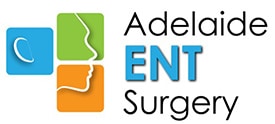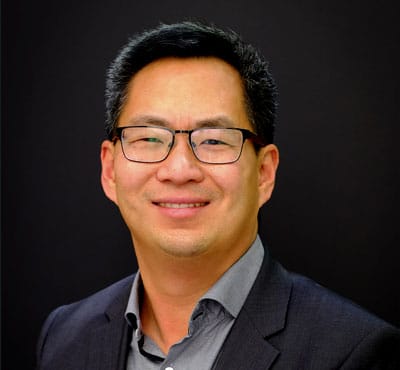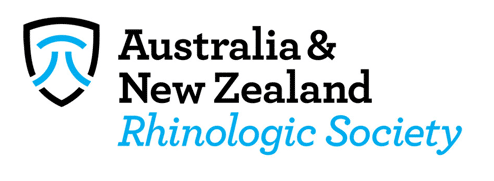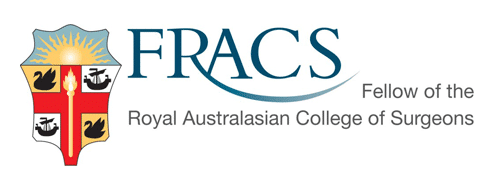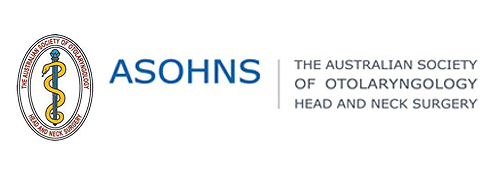INTRODUCING ASSOC. PROF. ENG H OOI
Associate Professor Eng H. Ooi is a specialist Ear Nose and Throat (ENT) Surgeon with a private practice at Flinders Private Hospital & Calvary Adelaide Hospital and a public appointment at Flinders Medical Centre. Associate Professor Eng Ooi sees general paediatric and adult patients including tonsillitis, sinusitis, snoring, voice, airway, head and neck cancers.
He chairs the weekly Flinders Head and Neck Cancer Multi-Disciplinary Meetings, is a member of the altered airway team at Flinders and is Head of the Flinders Medical Centre ENT Surgery Department leading a team of 8 surgeons, an advanced rhinology fellow, 2 registrars, research registrars. residents, an intern, medical scientist and a Head and Neck Nurse Practitioner.
Background
Associate Professor Eng Ooi graduated from the University of Adelaide Medical School. He is a Fellow of the Royal Australasian College of Surgeons (F.R.A.C.S.) in Otolaryngology Head and Neck surgery (ENT). He did his training in Adelaide, South Australia and Darwin, Northern Territory. He is a qualified surgeon scientist having completed a PhD thesis researching the innate immunity changes in chronic rhinosinusitis.
He then undertook further subspecialisation fellowship training with the University of Toronto in Rhinology, Endoscopic Skull Base, Head and Neck Surgery. This has allowed A/Professor Eng Ooi to bring back ENT surgical skills, knowledge and research experience from Toronto to Adelaide for the benefit of his patients.
A/Professor Ooi has recently undertaken additional training in Trans-Oral Robotic Surgery (TORS) to provide additional treatment options for patients with head and neck throat cancer at Flinders Private Hospital
Current positions
Research achievements
Special Interests: Chronic sinusitis and Endoscopic Sinus Surgery, Endoscopic skull base surgery (pituitary and other brain tumours), Head & Neck cancers, Trans-Oral Robotic Surgery (TORS) for throat cancers, Parotid, Submandibular, and Thyroid benign and cancerous growths, Obstructive Sleep Apnoea and Snoring Surgery, BiZact tonsil surgery.
Rhinology (sinus surgery) research
Failure of endoscopic sinus surgery to improve patients symptoms can be due to adhesions and lateralisation of the middle turbinate. Adhesions prevent sinus drainage and nasal irrigations or steroid sprays to enter the sinuses. Associate Professor Eng Ooi uses a silastic sinus stent in some patients undergoing endoscopic sinus surgery to prevent adhesions and reduce middle turbinate lateralisation and reduced revision surgery rates. He demonstrated its effectiveness in a randomised controlled trial (level 1 evidence based medicine) in ENT patients undergoing endoscopic sinus surgery (FESS) at Flinders Medical Centre (FMC). He has also participated in several clinical trials of the latest medications and devices to improve the outcomes of sinus surgery or to treat chronic sinusitis in the clinic without needing revision sinus surgery. The current trial recruiting patients is “The effect of intra-sinus application of Betamethasone Dipropionate nasal cream (BDMP cream) on patients with Chronic Rhinosinusitis (CRS) post functional endoscopic sinus surgery”.
Head and Neck Cancer Research
Tonsil (oropharyngeal) cancer is becoming the most common type of cancer in the head and neck in Australia. It is more common in males and is associated with the Human Papilloma Virus (HPV). Smoking continues to be a risk factor for developing head and neck cancer but HPV is emerging as a strong risk factor especially with tonsil cancer. Tonsil, Head and Neck cancer is treatable if detected early. Associate Professor Eng Ooi is a leading member of the Flinders Multi-disciplinary Head and Neck Cancer team. He maintains an active up to date involvement with the latest treatment options and is leading several research projects to improve care for head and neck cancer patients. This include developing blood and breath tests to detect tonsil cancer (currently none exist) and improving swallowing difficulties (dysphagia) in patients. He has also published in peer-reviewed scientific journals on the use of minimally invasive robotic assisted surgery (TORS) for removal of these cancers.
Obstructive Sleep Apnoea research
Associate Professor Eng Ooi has published several papers on the treatment of obstructive sleep apnoea (OSA. He was a key member of SAMS trial which was a major Australian randomised control trial (a large surgical RCTs with level 1 evidence) addressing the question “Is multilevel airway surgery effective in adults with moderate or severe obstructive sleep apnea (OSA) who cannot tolerate or adhere to device use?”. Multi-level upper airway surgery (UPPP + coblation tongue reduction) was shown to reduce AHI (OSA) severity and patient reported sleepiness in this trial. This provides evidence that surgery is effective for appropriate patients with OSA. Associate Professor Ooi is also currently part of several clinical trials on the use of novel minimally invasive devices to stimulate nerves and medications to treat patients with sleep apnoea.
One of the trials currently recruiting patients is “Reboxetine for obstructive sleep apnoea after upper airway surgery: a randomized, double blind, placebo-controlled pilot study”.
Tonsil research
Associate Professor Eng Ooi is leading research into new techniques BiZact tonsillectomy to minimise blood loss, improve recovery and patients quality of life. He regularly conducts quality audit reviews to ensure his techniques are improving patient outcomes with low rates of complication and has published multiple papers and presented talks on this technique to other surgeons.
Please speak to Associate Professor Ooi if you are interested in knowing more about participating in any of these trials
